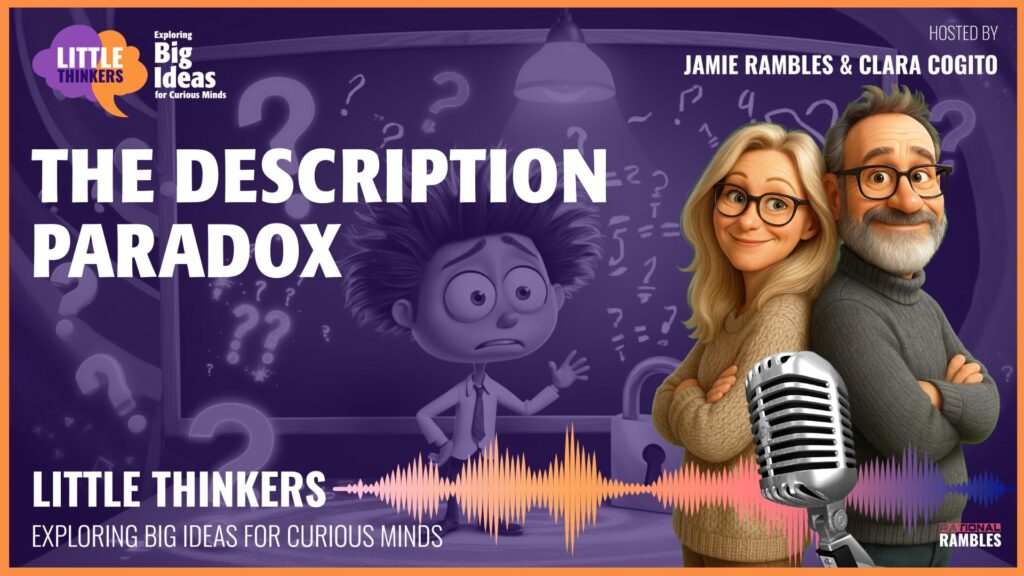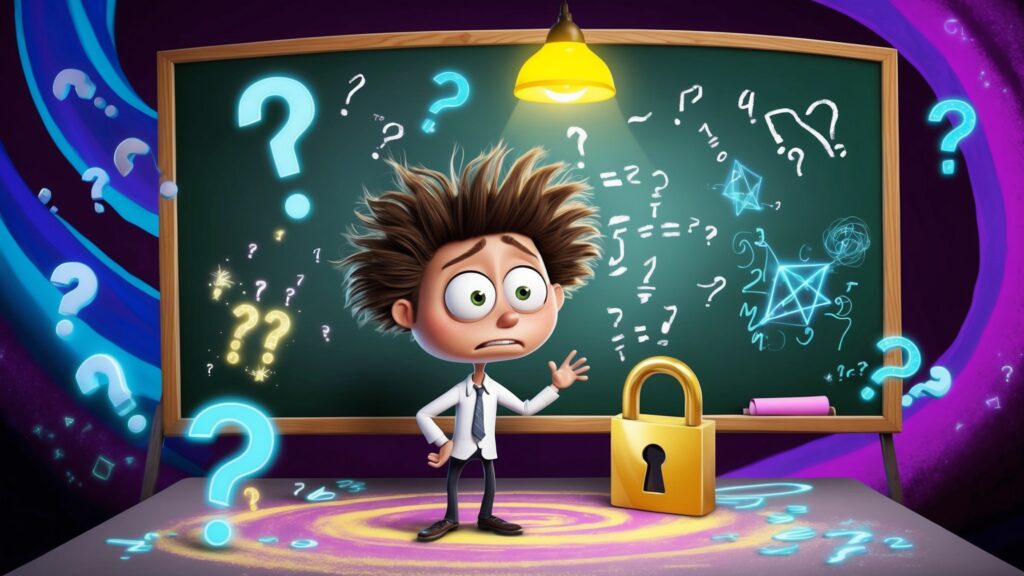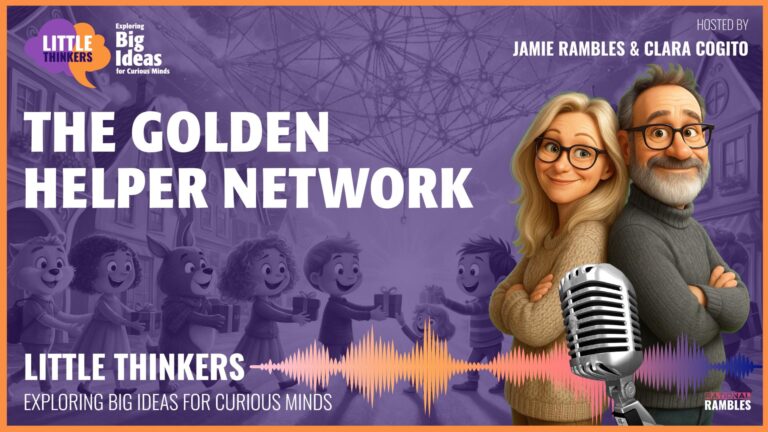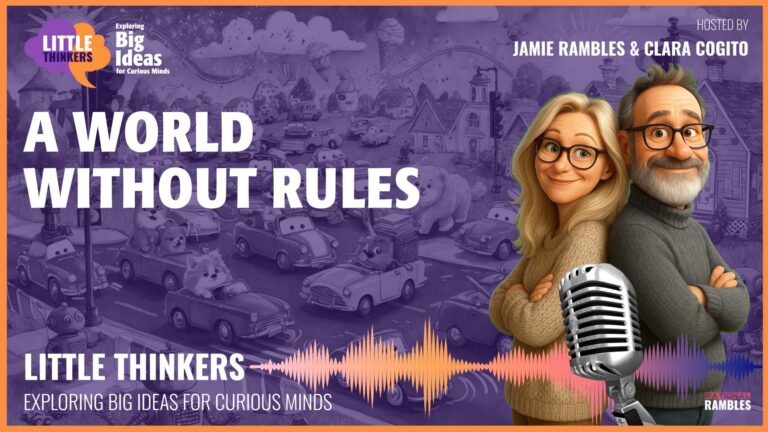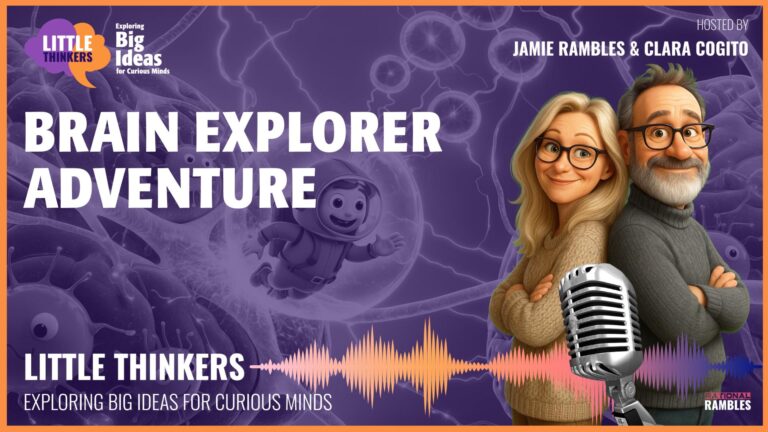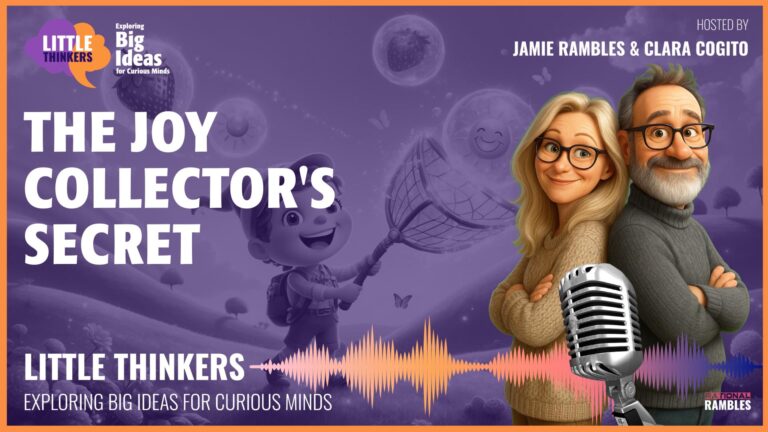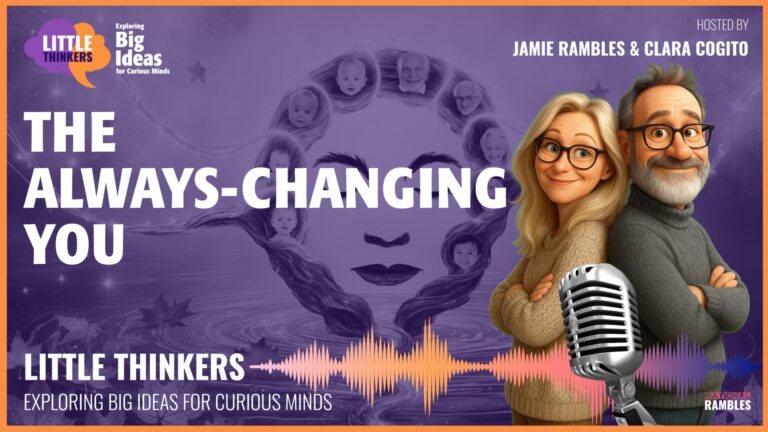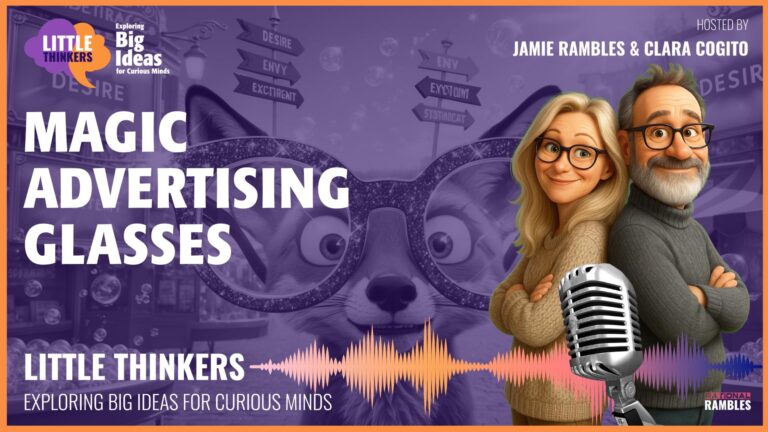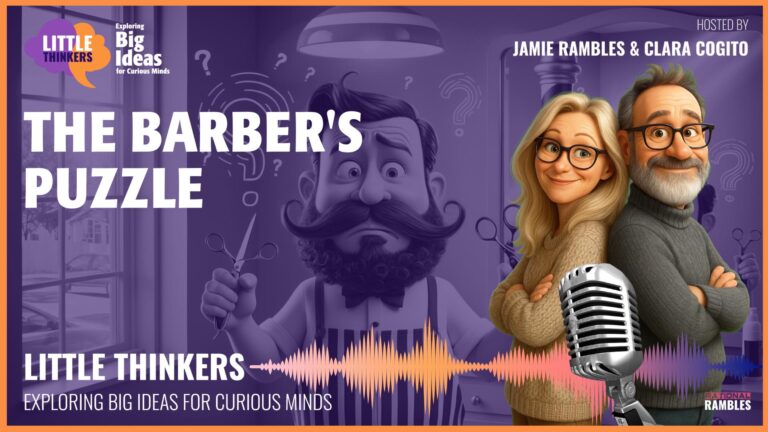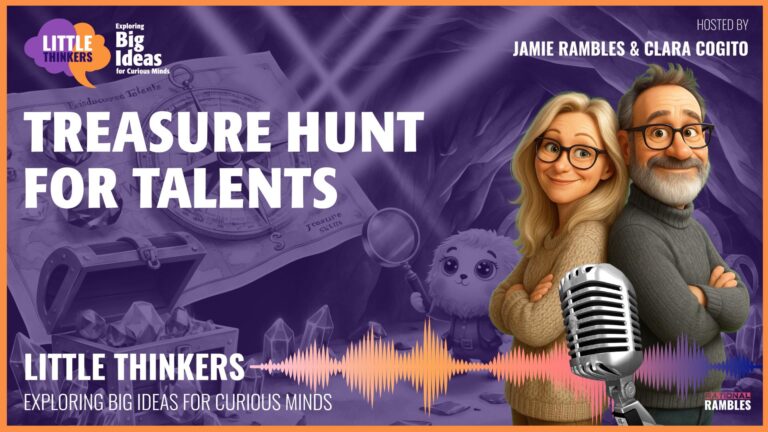Brain-Twisting Paradoxes: When Words and Numbers Play Hide-and-Seek!
What Happens When Words Get Tangled?
Have you ever tried to catch your own shadow? No matter how fast you run, it’s always just out of reach! Some puzzles in the world of thinking work the same way – they seem to run away from us when we try to catch them. These special puzzles are called paradoxes (say: “PAIR-uh-docks”), and they make our brains feel like they’re doing cartwheels!
The Number That Can’t Be Described (Or Can It?)
Let’s try a super tricky brain puzzle together. Think about this question:
What’s the smallest number that can’t be described in less than twenty words?
Small numbers are easy to describe, right? “Five” is just one word. “One million” is only two words. Even gigantic numbers like “one trillion billion gazillion” only take a few words to describe.
So somewhere out there must be a number that needs at least twenty words to describe it. But wait! We just described that number as “the smallest number that can’t be described in less than twenty words” – and that’s only thirteen words!
BOOM! 🤯 Brain explosion!
Wait, What Just Happened?
We said there’s a number that needs at least twenty words to describe it, but we just described it with FEWER than twenty words! It’s like trying to pick yourself up by pulling on your own shoes – it shouldn’t work!
What Are Paradoxes?
A paradox is a statement or idea that seems to contradict itself. It’s like when your little brother says “I always lie” – if he’s telling the truth, then he’s lying, but if he’s lying, then he’s telling the truth! These brain-tangles make our heads spin in the most fun way!
Paradox Playground: Try These Mind-Bogglers!
- The Box Puzzle: Imagine you have a box labeled “A box that contains all boxes that don’t contain themselves.” Should this box contain itself? If it does, it shouldn’t. If it doesn’t, it should!
- The Red Shirt Riddle: Your friend says “I never talk to people wearing red shirts” – but your friend is wearing a red shirt! They’d have to talk to someone in a red shirt (themselves) to say this!
- The Barber Brain-Twister: In a town with just one barber, this barber shaves everyone who doesn’t shave themselves. So… who shaves the barber?
Create Your Own Paradox!
You can make your own paradoxes using things in your bedroom. How about: “This toy box contains all toys that aren’t inside themselves.” Then think about whether your stuffed bear should be in the box or not!
Or try with food: “This lunch box contains all foods that don’t taste like themselves.” Would a PB&J sandwich that tastes like pizza be in the box? These questions make your brain do gymnastics!
What Do Paradoxes Look Like?
Paradoxes are like those tricky pictures where stairs seem to go up and down at the same time, or water looks like it’s flowing uphill! Your eyes tell you one thing, but your brain knows something isn’t right. They’re like optical illusions for your thinking!
Do Animals Think About Paradoxes?
Imagine a dog thinking “I never chase my tail” while chasing its tail! That would be a doggy paradox! While we don’t know if animals puzzle over paradoxes, did you know that octopuses have NINE brains? Maybe with all that brain power, they’re solving paradoxes under the sea all day long!
The Important Side of Brain-Tangles
Paradoxes aren’t just silly brain games – they’ve helped grown-up thinkers make amazing discoveries! A smart mathematician named Kurt Gödel used paradoxes to show that in math, there are some true things that you can never prove. Wow!
Sometimes when our brains get all tangled up, it means we’re discovering something super important about how thinking works! It’s like finding a secret door in a room you thought you knew completely.
Ancient Brain Puzzles
Some paradoxes have been puzzling thinkers for over 2,500 years – that’s older than pizza, bicycles, and even ice cream! And we still don’t have perfect answers for many of them. That shows how deep and interesting these puzzles really are.
Why Paradoxes Matter
Paradoxes remind us that even grown-ups don’t have all the answers. They show us that questions can be even more exciting than answers! The world is full of mysteries that make us go “Hmmm” and “Huh?” – and that’s what makes thinking so much fun.
When your brain feels like it’s tied in knots because of a paradox, it’s actually getting stronger! Just like your muscles grow when you exercise, your thinking gets more powerful when you wrestle with tricky puzzles.
Your Turn to Wonder!
The next time something seems impossible or contradictory, don’t worry! You might have just discovered a paradox. And that means you’re thinking like the world’s greatest philosophers and mathematicians!
Try making your own paradoxes with toys, food, or anything else you can think of. Your brain will thank you for the workout!
Paradox Challenge!
Can you explain the paradox in this sentence: “This sentence contains exactly five words”? (Hint: Count the words!)
Or try this one: “The sentence you are reading right now has exactly nine words.” Is it true or false? What happens when you think about it?
The Never-Ending Thinking Adventure
Remember that asking “Wait, that doesn’t make sense…” is often the start of the most amazing thinking adventures! Your curious questions might someday solve puzzles that have stumped thinkers for centuries!
Your brain is an amazing paradox-exploring machine. Keep wondering, keep questioning, and enjoy the delightful feeling of your brain doing somersaults when it meets a good paradox!

